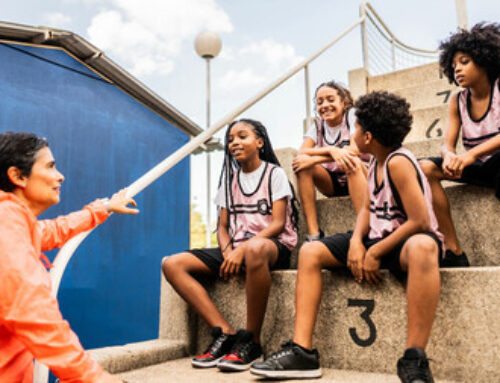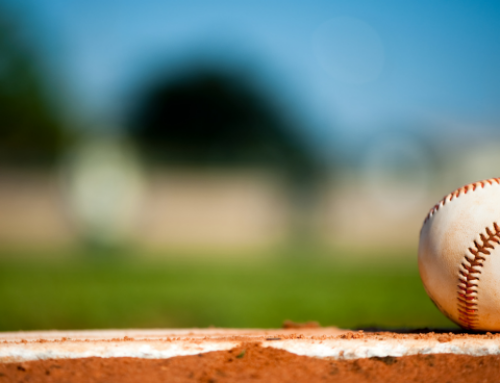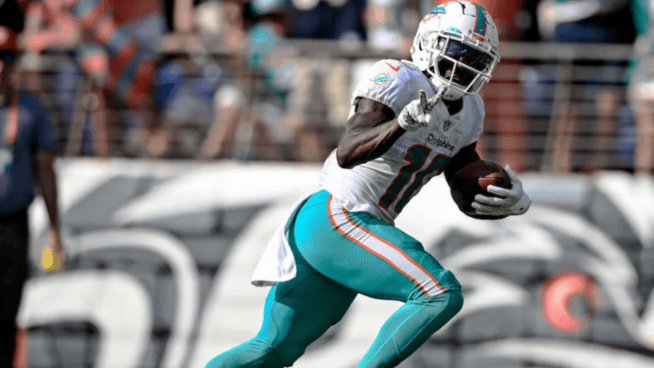Legendary Basketball Coach Muffet McGraw: Parents Today Don’t Want to Give Their Child a Chance to Fail
Muffet McGraw is basketball royalty.
Since taking over as head coach for Notre Dame’s women’s basketball in 1987, she’s led the program to 8 Final Four appearances and two National Championships. She’s been named the AP Coach of the Year on four separate occasions. She recently notched her 900th career win.
So when McGraw speaks on the state of youth sports, we should listen. Prior to the TCL Vancouver Showcase earlier this season, McGraw shared her thoughts on how athletes have changed since she started her coaching career. From The Province:
“Parents today don’t want to give their child a chance to fail. The first time there’s adversity, the kids don’t know what to do. They are not able to fight through things…I think freshman year is hard. I think everybody has a tough time freshman year. For generations, freshmen have been calling home several times and saying how much they hate it and how things are not working and parents have been letting them vent before explaining that a commitment has been made and it’s going to be followed up on and ‘we’ll see you at your game next week’…Now it’s different. Now you’ve got some parents who I think are like, ‘You’re probably right.’”
McGraw is right, and she’s far from the first sports expert to point out the lack of resiliency among many modern young athletes. Many modern sports parents believe their child is destined to be a pro superstar, so how could anything ever possibly be their fault? Nope, when the team is struggling to get victories or their child is struggling to put up gaudy statistics, it must be someone else’s fault—either the coaches, the teammates, or a combination of both. The biggest issue with this development is that it takes away one of the most important life skills young people learn through sport.
McGraw also believes that the dramatic rise in early sport specialization may have something to do with it.
“Do I think we’re specializing at too young an age? Absolutely. I hate it,” McGraw said. “You don’t have to pick one sport when you’re 10 or 12 years old…You learn so many things playing different sports. You may play something where you’re not the best player on the team. You learn what it’s like to be in that situation and how to handle it. It can help you down the line.”
While playing multiple sports during your pre-teen years can have many physical benefits—such as a decreased risk of overuse injury and greater overall athleticism—the mental benefits should not be overlooked. As McGraw mentioned, it allows the athlete to experience different roles on a team as well as different styles of coaching.
You never know how these type of things can come back to help an athlete—Philadelphia Eagles quarterback Nick Foles mentioned how he tried to think like a point guard during Super Bowl LII, for example.
Photo Credit: Icon Sportswire/Getty Images
READ MORE:
RECOMMENDED FOR YOU
MOST POPULAR
Legendary Basketball Coach Muffet McGraw: Parents Today Don’t Want to Give Their Child a Chance to Fail
Muffet McGraw is basketball royalty.
Since taking over as head coach for Notre Dame’s women’s basketball in 1987, she’s led the program to 8 Final Four appearances and two National Championships. She’s been named the AP Coach of the Year on four separate occasions. She recently notched her 900th career win.
So when McGraw speaks on the state of youth sports, we should listen. Prior to the TCL Vancouver Showcase earlier this season, McGraw shared her thoughts on how athletes have changed since she started her coaching career. From The Province:
“Parents today don’t want to give their child a chance to fail. The first time there’s adversity, the kids don’t know what to do. They are not able to fight through things…I think freshman year is hard. I think everybody has a tough time freshman year. For generations, freshmen have been calling home several times and saying how much they hate it and how things are not working and parents have been letting them vent before explaining that a commitment has been made and it’s going to be followed up on and ‘we’ll see you at your game next week’…Now it’s different. Now you’ve got some parents who I think are like, ‘You’re probably right.’”
McGraw is right, and she’s far from the first sports expert to point out the lack of resiliency among many modern young athletes. Many modern sports parents believe their child is destined to be a pro superstar, so how could anything ever possibly be their fault? Nope, when the team is struggling to get victories or their child is struggling to put up gaudy statistics, it must be someone else’s fault—either the coaches, the teammates, or a combination of both. The biggest issue with this development is that it takes away one of the most important life skills young people learn through sport.
McGraw also believes that the dramatic rise in early sport specialization may have something to do with it.
“Do I think we’re specializing at too young an age? Absolutely. I hate it,” McGraw said. “You don’t have to pick one sport when you’re 10 or 12 years old…You learn so many things playing different sports. You may play something where you’re not the best player on the team. You learn what it’s like to be in that situation and how to handle it. It can help you down the line.”
While playing multiple sports during your pre-teen years can have many physical benefits—such as a decreased risk of overuse injury and greater overall athleticism—the mental benefits should not be overlooked. As McGraw mentioned, it allows the athlete to experience different roles on a team as well as different styles of coaching.
You never know how these type of things can come back to help an athlete—Philadelphia Eagles quarterback Nick Foles mentioned how he tried to think like a point guard during Super Bowl LII, for example.
Photo Credit: Icon Sportswire/Getty Images
READ MORE:












